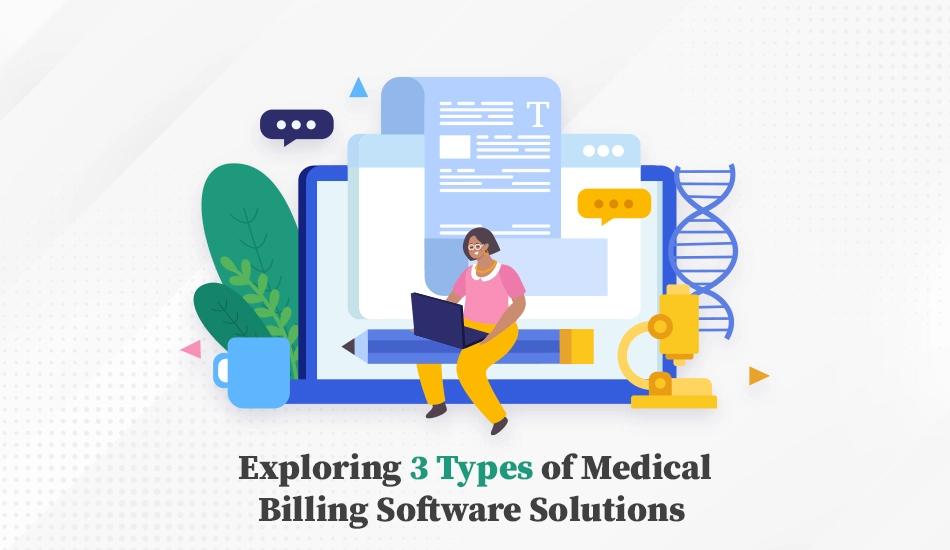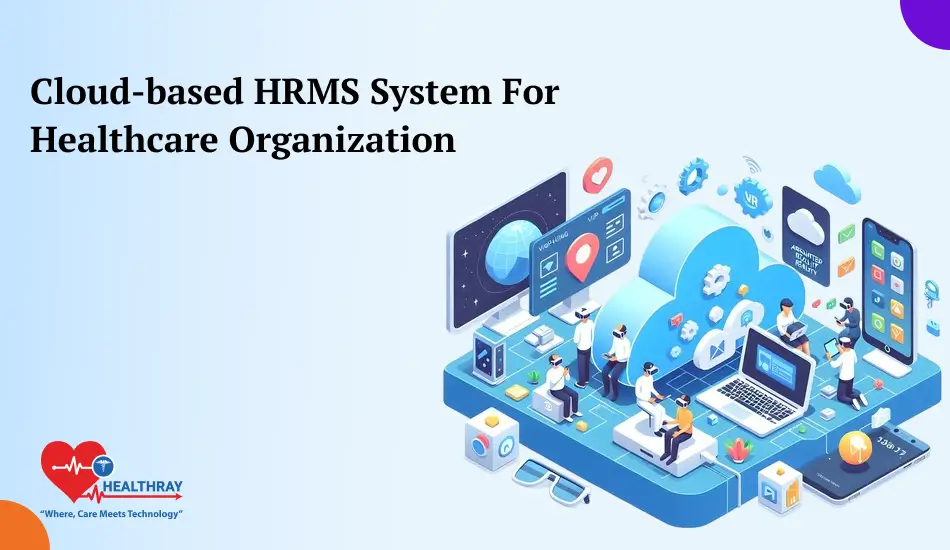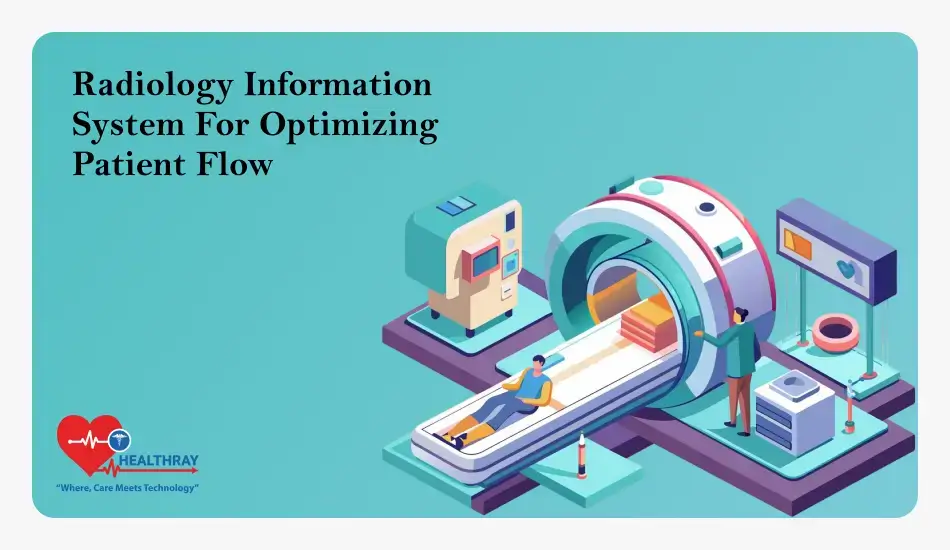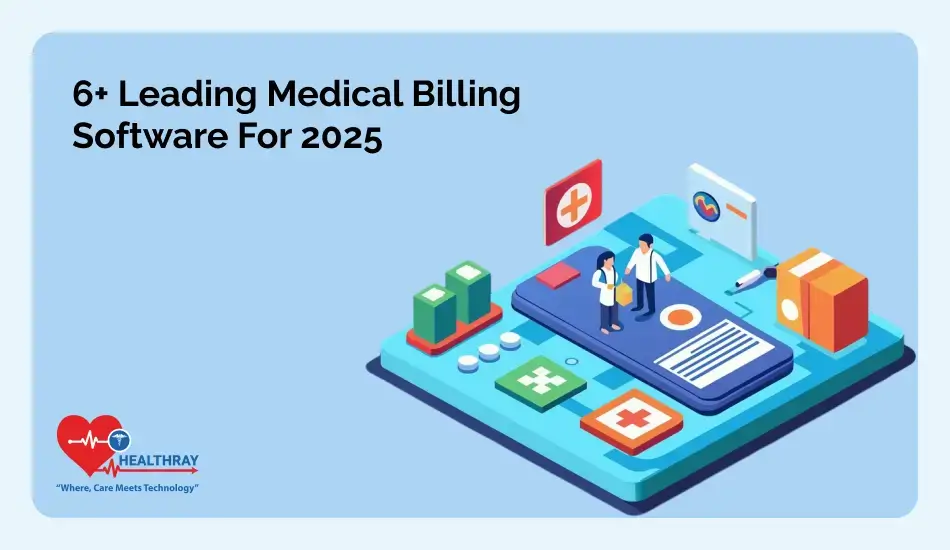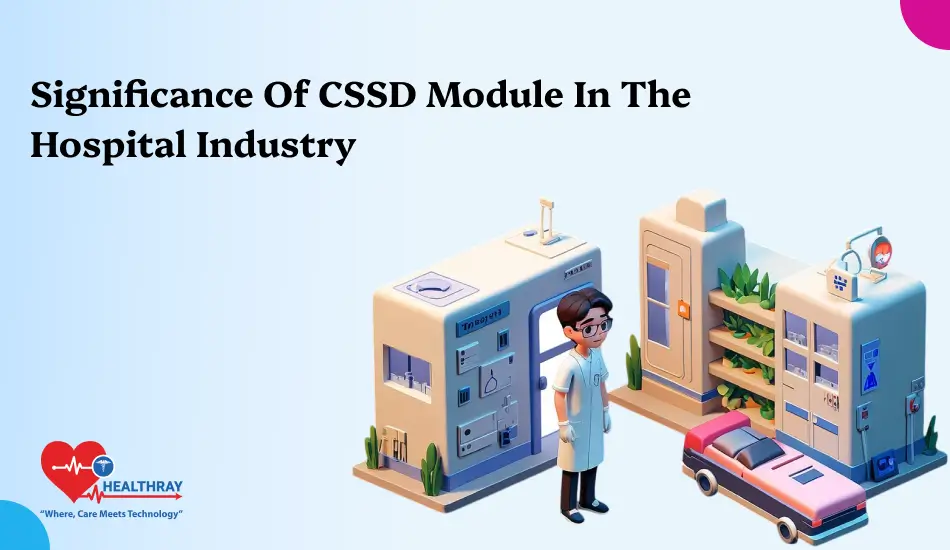Quick Summary: Discover the diverse landscape of medical billing software with insights into three fundamental types: closed system, open system and isolated system for a tailored approach to healthcare financial and practice management solutions.
Introduction
In contrast to popular belief, medical institutions tend to make use of medical billing systems to keep track of any kind of transaction. There are various types of medical billing software available in the market. However, knowing their appropriate use might prevent you from losing a significant amount of revenue.
Each type of billing system has its own usage and working process. But now all of these are made to facilitate patients and healthcare professionals together. Hence, this is the reason why healthcare providers are not able to decide the right time for healthcare billing transactions.
Customizable Medical Billing Software has the ability to adapt with the modifying environment. The billing companies create personalized bills with the adherence of invoicing regulation. On the other hand, it is easy to fabricate invoices for individual medical providers as they don’t need to hire an employee and minimizes their expenses.
This article dives deep into the three most common types of medical billing software, their usage and who can use them. It provides you with all the essential details for this software to have a better understanding while making the choice.
Let’s get started!
What are medical billing systems?
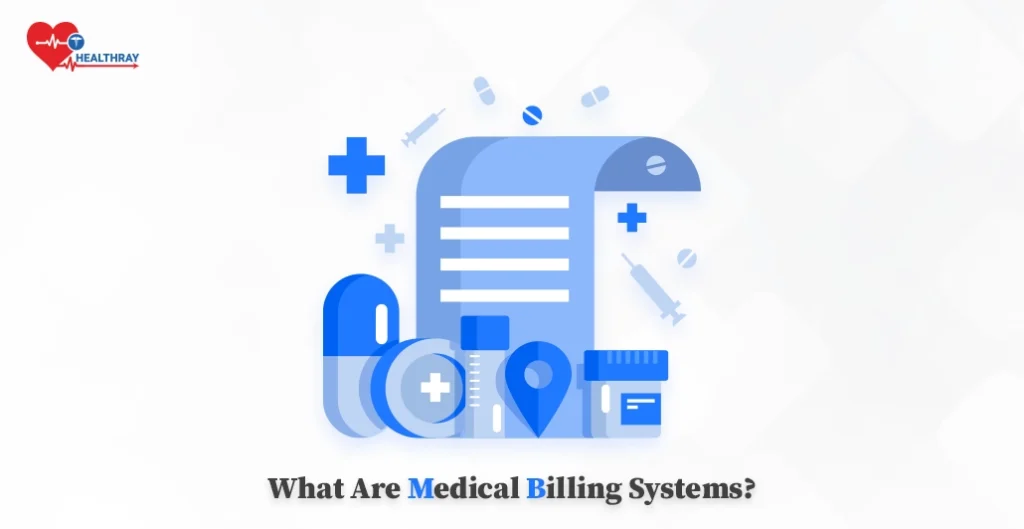
One MedTech solution that automates billing and streamlines procedures for company management is medical billing software. It is a tool for conveniently automating manual tasks, just like billing and managing claims. Healthcare institutions such as clinics, hospitals, institutions, and more can use medical billing software to submit claims. Later, it can be even helpful in managing communications along with multiple providers.
These healthcare experts can also be helpful in tracking payments and managing patient bills. The best medical billing software system is helpful in eliminating all complexities that come along with the business management process.
Top medical billing software simplifies the healthcare billing process from entering patient personal information to compliant regulations. On the other hand, patients pay medical bills from their comfort place and convenient device. EHR systems reduce patient visits, improve physician practices, swiftly claims process, provide appointment reminders, and minimizing expenses.
Medical billing systems are known to offer different features for managing your practices with the patient portal with help of functionalities. Here is a list of components of Medical Billing Process method:
Claims Management: Having an in practice management solution and approach that is well-organized and can unify the claiming process along with minimizing inaccuracy in data. Hence, claim management can eliminate paperwork and improve billing workflow with the help of systematic records.
Constant Compliance: Medical billing systems can help with automatically updating to accommodate all the latest healthcare guidelines. It further helps healthcare facilities to get peace of mind as they know that it ensures that they are avoiding legal complications.
Business intelligence elements: You may improve current procedures by using the tools and analytics that medical billing software offers, which can offer profound insights. Therefore, the billing analytics to make decision clinical action.
Automated scheduling: If you have an advanced medical billing solution, it might include automatic scheduling integrations. Hence, it can help with better access to patient data, such as appointment and treatment data. It facilitates a better patient experience.
Real-time financial reporting: Healthcare teams can quickly seek insights into their practice management with the help of closely monitoring the experiences of their patient and their institution’s performance.
What are three different types of billing systems in healthcare?
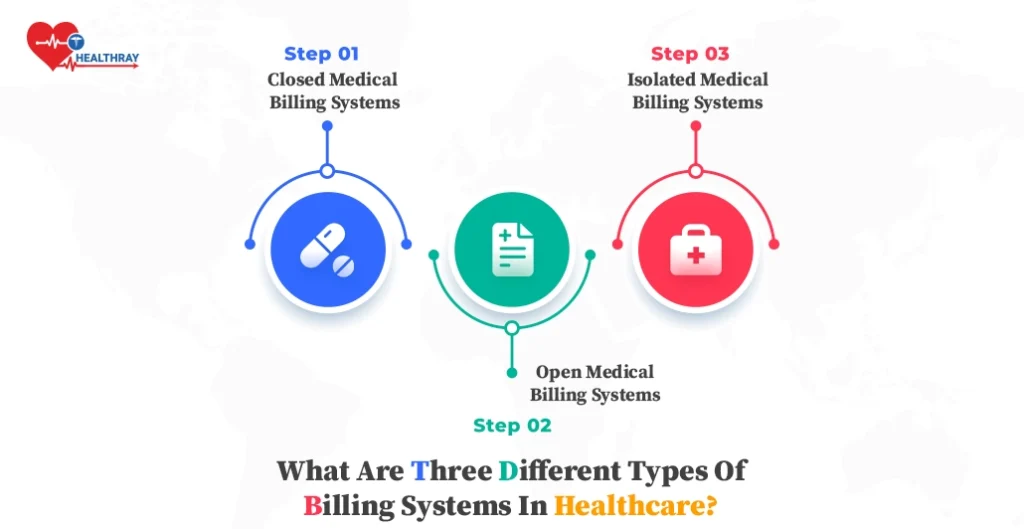
Closed Medical Billing Systems
As its name itself comprises the term closed, all the billing charts and health records are present in the closed system with a safe environment in the domain of a particular healthcare provider. One of the most known tools for treatment charts and data recording for specific patients is Electronic medical records. No matter whether it is possible to connect one EMR with another, it’s only possible within the boundary of a particular physician. This tool is just for the team’s human services organizations that conduct billing and particular physicians.
Who can employ Closed Medical Billing Systems? The majority of the time, these closed medical billing systems are suitable for doctors who conduct practice on a small basis and need fewer physicians and more personalization.
Open Medical Billing Systems
The reach of patient health records in an open medical billing system has extended beyond a single practice. All the stakeholders in the healthcare industry, such as patients, organizations, teams behind the medical billing process, and vendors, can easily access these data and information.
Electronic health records can be helpful in transmitting data to the different sectors of the systems. EHR is known to offer a better information chart than the EMR. Additionally, it is not limited to the boundary of a particular medical practice. Hence, a professional or patient can easily monitor and edit the data.
Who can employ Open Medical Billing Software? Large healthcare organizations composed of various departments can make use of medical billing systems as an extra added advantage.
Organizations that are looking to outsource the system for their medical billing to a third-party vendor must go for open medical billing systems. Hence, it allows seamless transmission of information to the professionals who outsource closed medical billing systems.
Isolated Medical Billing Systems
Most of the time, isolated medical billing systems are advantageous to healthcare providers rather than being a part of medical billing frameworks. Through Personal Health Records (PHR), patients can manage these separate medical billing systems instead of healthcare providers or organizations. Patients are able to update, retain, and consult these records whenever it is convenient for them. Software tools are another source of assistance for patients in maintaining their PHRs.
Who can employ Isolated Medical Billing Systems?
Only patients use isolated medical billing systems. Thus, healthcare organizations may choose to use EMRs or EHRs. PHR is unable to take their place.
What are the benefits of medical billing software?
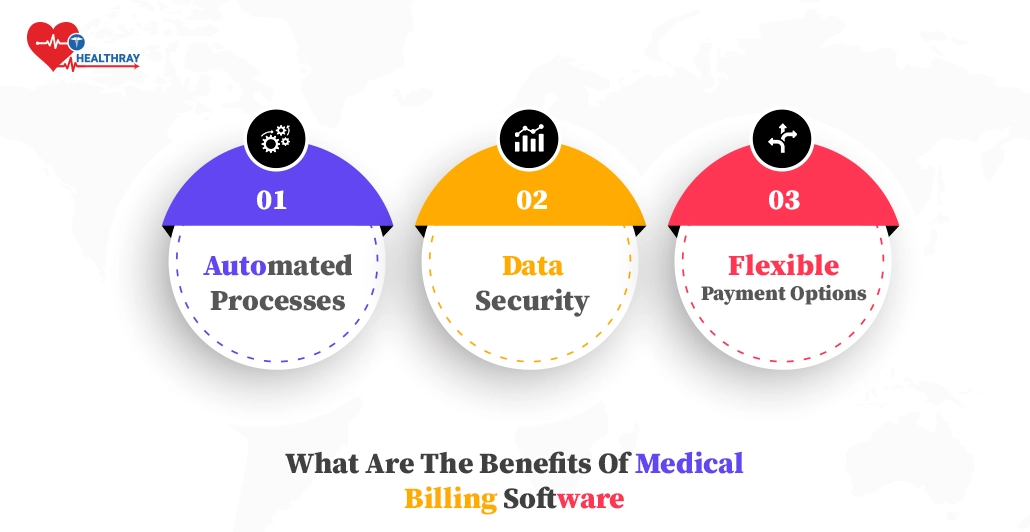
Medical billing software is known to eliminate all the complexities that are associated with billing in the healthcare system. It’s not just all, but there are many other benefits. Additional advantages of the medical billing software system include the following:
Less Errors:
Advanced medical billing software makes use of a technique that ensures that the claims of patients are error-free before submission.
Medical billing software is known to streamline the practices for providers to ensure accurate reimbursements as per the information from different sources, such as medical reports and procedures. Enhancing AI capabilities in specialized billing systems can make coding practices automatic to make electronic health record data entry with better efficiency.
You can integrate coding functions with a patient database that is secure to reduce the risks of denial in claims, enhance the revenue cycle, and ensure healthcare management runs smoothly.
Automated processes
Medical billing software is known to enhance operational efficiencies by making bill claims and reimbursement procedures automatic. Automation is also responsible for ensuring that healthcare vendors can handle follow-ups for claims, optimize systems and better alerts and notifications. This software also provides eligibility verification in patient records for easy payments of insurance claims and reimbursements.
Healthcare facilities’ financial stability may not be able to match the improved patient care experiences that an automated process can deliver. As a result, the group may concentrate on offering top-notch services without becoming sidetracked.
Data security
Practitioners can manage their electronic health records (EHR) safely and in real-time with integrated billing functionality with the help of automated medical billing software.
These specialist solutions protect sensitive patient data and avoid legal ramifications by adhering to the most recent government rules and Health Insurance Portability and Accountability Act (HIPAA) guidelines.
EHR and billing solutions that work well together offer a safe one-stop database for all healthcare administration requirements. Encryption features are available in cloud-based medical billing systems, providing extra security layers to protect sensitive patient data. Data gaps are eliminated by the streamlined approach, which also makes information easily retrievable for quick claims and reimbursements.
Flexible payment options
Healthcare providers can integrate medical billing software with various payment processors to offer multiple arrangements. Multitudinous payment processing also maximizes patient guests while lowering costs and adding availability to healthcare. Mobile-friendly patient doors with gyroplane interfaces that superimpose guests through a hassle-free agreement process are possible factors of a billing software package.
What is the medical billing software cost?
As was preliminarily said, the cost of developing bespoke medical billing software can differ significantly depending on the features, position of complexity, and technological mound.
Industry interposers estimate that the total original disbursement for hosting your own medical billing and rendering system is from 3,000 to 8,000. However, the entire expense depends on the association’s size and whether or not on-point servers are desired.
Web-grounded, or” pall,” software can be bought for 26 to 112 a month. It’s also common practice to charge a chance of claims that are reused via the seller’s software. It’s also critical to consider the amount of cases handled each day and the number of physicians who use software.
Software that’s hosted on the pall generally costs more than software that’s hosted on- point. Numerous software suppliers charge a fixed yearly price. With setup and other charges barred, the average yearly morning cost of the service is 30 to 100 per stoner. Indeed$ 200 –$ 500 per month is possible with advanced league pricing plans( 360 Connect). Read our article on Medical Billing Software to understand the billing process better.
Medical billing software will come with new expenses in addition to annual and over-frontal costs for both pall and hosted alternatives. It is preferable to factor these expenses in when calculating your overall charge and budget. These are some of the most recent price breakdowns you may expect to see when purchasing medical billing software.
- Software training might cost $1,000 – $3,000
- Software license might cost $1,500 – $3,500 per user
- Annual maintenance and upgrades might cost $1,500 – $3,500 per year
- Personal room to house the server
- Updates and IT support
Why is Healthray’s Medical billing software solution the best choice?
For several reasons, Healthray’s medical billing software is a great option. Its user-friendly layout guarantees smooth navigation and boosts executive productivity in the healthcare sector. Because of the system’s flexibility, it may be acclimatized to meet the specific billing requirements of a variety of medical practices.
Healthray places a high priority on patient information confidentiality by administering robust security mechanisms. Its unique point is the integration of sophisticated analytics, which makes it possible to give intelligent fiscal reporting and effective profit operation.
The program guarantees adherence to changing healthcare rules by taking a visionary station towards sedulity upgrades. Healthray is the best- in- class result, transforming medical billing operations with its fidelity to expansive features, stoner-friendly design, and ongoing invention.
Conclusion
The healthcare industry is broadening each day and so does software that handle it. Hence there is plenty of software in the market that facilitates the processes of the medical industry. One of those prominent softwares is the medical billing system. It plays a vital role in managing financial aspects of the entire industry. From managing claims to having accurate reimbursement data, medical billing software can do it all. Hence if you have a healthcare organization its necessary to have a medical billing software, irrespective of the size.
Despite how confusing the medical billing systems may seem, all you need to do is comprehend them and pay careful attention. Outsourcing is the fashionable choice, and it will produce excellent outcomes.
